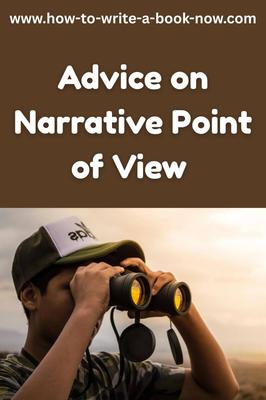Who's the protagonist, here?
by Dana
(Sacramento, California)
Question: I've finished the 8th draft of my first novel, a contemporary romance with some comedy, but not enough to call it a rom-com. It is in omniscient voice, and the main character is a middle-aged woman. I thought she was the protagonist, because most of the story is about her life and from her perspective.
But now I wonder if the leading man is actually the protagonist. He's the one with a specific, measurable goal - to befriend, get to know, pursue, and ultimately marry the woman. She's just living her life alone, assuming she's unlovable and will die alone, too. Her main goal is to keep her career going as long as possible, enjoy friends, and never get her heart broken, again.
Her goals don't fit the "SMART" (specific, measurable, actionable, realistic, time-bound) requirement I've read about. Is that really important? Can a story that can't be analyzed that way still be a good one? Or should I rewrite the 400-page manuscript to be from the leading man's point of view and/or focus on him? Or am I just too caught up in writing lingo and advice from too many sources? (Yours has always seemed the most logical, to me.) Thank you for your thoughts.
Dana
Answer: The "SMART" formula you mention is best applied to external goals. The "time-bound" element particularly suits linear thinkers and "ticking clock" stories. Romances are not time-bound, except in rare cases. (For example: "You must receive a true love's kiss within one year or else the witch's spell will turn you into stone," or "You have one week to find a lover and get married or else forfeit your multi-million-dollar inheritance.")
Most of the time, these types of stories appeal to male readers, since most men are linear thinkers. Holistic thinkers (which most women and some men are) tend to relate better to stories in which the characters are running out of options rather than time -- stories that are about the effort to find the right solution or make the right choice.
More often in romance, the external Story Goal is just an excuse to force the two potential lovers to interact with each other so that their relationship can bloom. For example... "My car has broken down and I urgently need to get to Chicago by Tuesday. Can I hitch a ride
It is perfectly fine in terms of story structure if the man is the protagonist, pursuing the relationship, and the woman is the main character (primary point of view). Not all stories are told from the protagonist's POV. Your main character, for example, could take on more of a Skeptic, or Reason, or any of the other archetypal roles. She will still be involved in the goal, even if she is not the primary pursuer of it.
However, it is pretty standard for romances to be told from the woman's POV so that the readers (who are mostly female) can more easily imagine themselves in her shoes.
So even if your Story Goal is "to not die alone," and the man is the primary pursuer of that goal, it will still be important to develop the arc of your main character's inner conflict. For example, if she starts out firmly believing that she is unlovable and must find companionship through work and friends, then the man, as impact character, must challenge that belief. The pressure for her to change must intensify in act two, and, in act three, she must make a choice whether to stick with her attitude or take a leap of faith and adopt his attitude. In act four we must see that she is better off as a result.
At the same time the relationship arc should suffer a crisis or "black moment" in act three where it seems to have crashed and burned. (This may occur either before or after she makes her choice.) Then in act four the relationship will experience a remarkable recovery.
The one thing I am curious about is the man's personal arc. It is quite common in romances to tell the story from both the male and female point of view. And since everyone is the hero of their own story, he may need to have his approach challenged by her just as he challenges her attitude. (If she changes, he will probably remain steadfast, but it is better if he wavers at some point.)
Hope that helps.
Comments for Who's the protagonist, here?
|
||
|
||
- Home
- Writing Questions
- Who's the protagonist, here?














